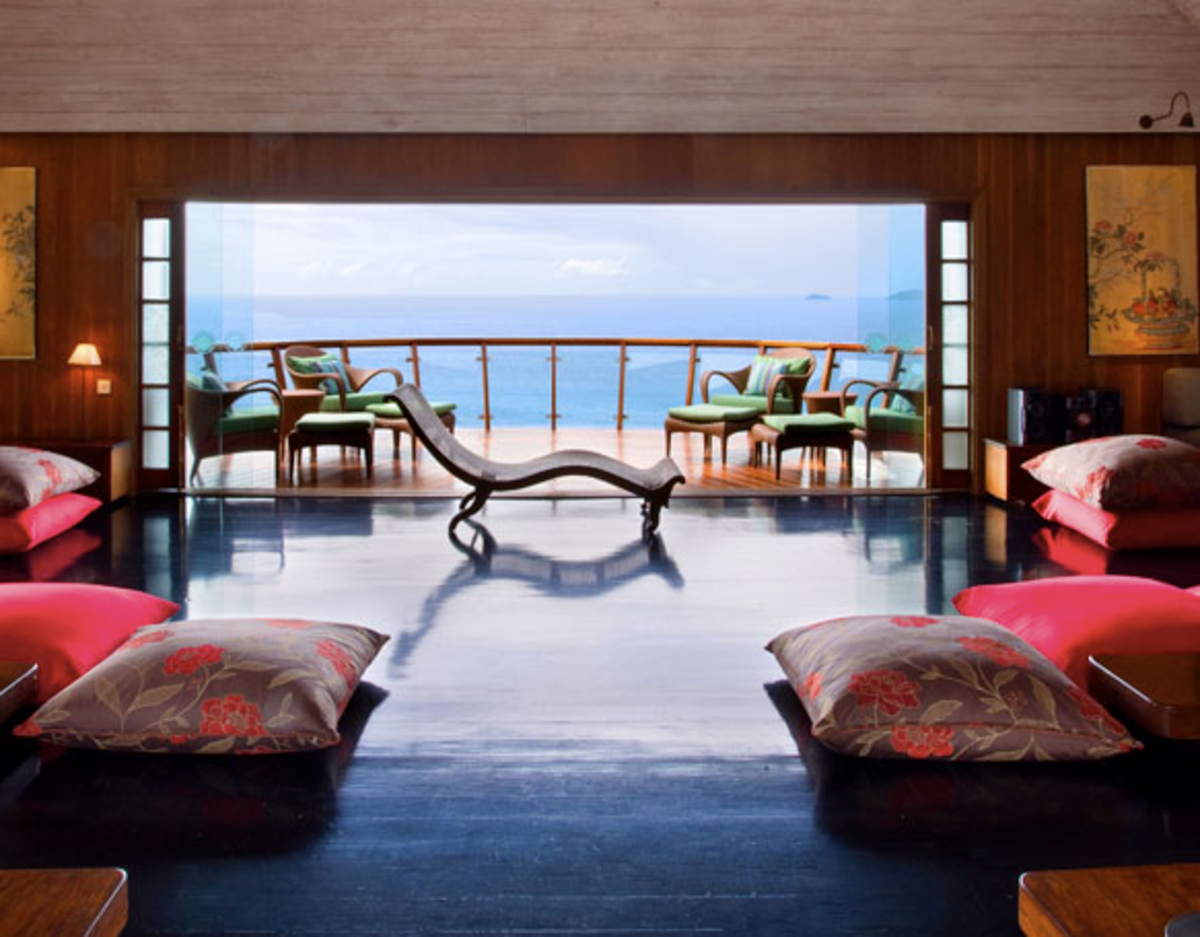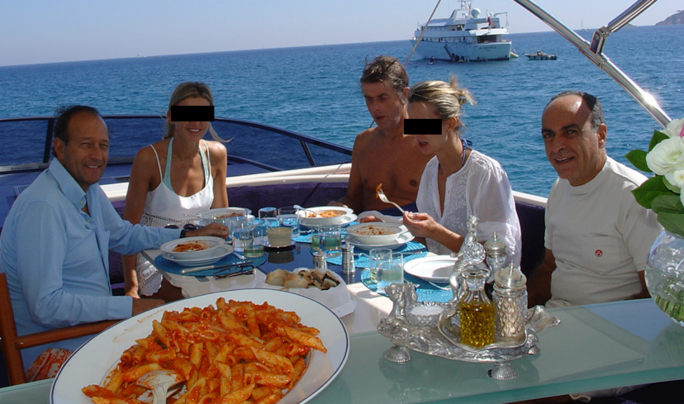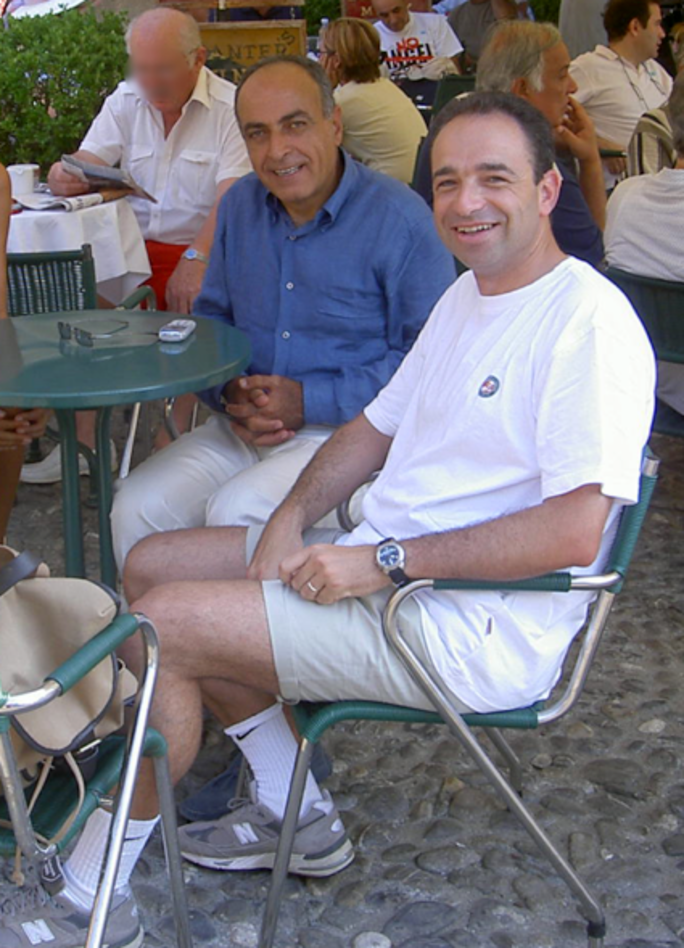Franco-Lebanese businessman Ziad Takieddine is a key witness in an ongoing judicial investigation into suspected illegal political financing in France via commissions paid in weapons sales abroad, notably a sale of French submarines to Pakistan. The probe, led by two Paris-based examining magistrates, has focused attention on the funding of former French Prime Minister Edouard Balladur's political activities at a time when current French President Nicolas Sarkozy was his close ally and aide.
Both Balladur and Sarkozy have denied any knowledge of suspected illegal kickbacks from the weapons sales. In a series of investigations into the activities of Takieddine, Mediapart has revealed the very close ties between the arms dealer and Nicolas Sarkozy's immediate entourage, including serving and former ministers, raising a number of questions about the nature of his role as an intermediary in several contracts.
In this fourth article, Fabrice Arfi and Karl Laske reveal how Sarkozy's close collaborators employed every State means at their disposal to save Takieddine from near-certain death after a mysterious accident on the exclusive Caribbean island of Mustique. The intermediary, who has claimed he was the target of an assassination plot, was at the time involved in negotiating a lucrative security contract between the French interior ministry - then headed by Sarkozy - and Saudi Arabia.
-------------------------
In the first three articles in this series of reports about businessman and arms dealer Ziad Takieddine, Mediapart exclusively revealed his very close personal links with ranking members of French President Nicolas Sarkozy's immediate entourage, and how Takieddine pays no income nor wealth tax in France, his fiscal domicile and where, according to documents signed by him, his wealth has an estimated value of more than 40 million euros.
Mediapart has further disclosed how in 2003 Takieddine was destined to receive 350 million euros in secret commissions from another arms contract, via a company run by the interior ministry then headed by Nicolas Sarkozy.
It was while that contract, a massive border security project with Saudi Arabia, was under negotiation that Takieddine travelled to the Caribbean for a holiday on the exclusive and private billionaire retreat of Mustique. The island, part of the Grenadines, was famously the favourite holiday site for Princess Margaret, late sister of Queen Elizabeth II, and its 100 private villas are owned and rented by an elite list of the rich and famous.
"In April 2004 I had a very strange car accident as I came back from the beach at Mustique," Takieddine recalled in an interview with French weekly le Journal du Dimanche, published in May 2010. "I don't remember anything, I was in a coma, given up for dead. Since then, I have been shown a report by the intelligence services indicating that [someone] wanted to assassinate me."
What he did not reveal in that interview was how he was saved from a near-certain subsequent death from his injuries in an operation mounted by close aides of Nicolas Sarkozy, who was at the time French interior minister. Mediapart can reveal here the details of that intervention, based on both details from Takieddine's own records, which Mediapart has had access to, and the accounts of people close to the events.
Ziad Takieddine touched down with his family on the island of Barbados on April 11th 2004. After an overnight stay at a luxury hotel called Cobblers Cove, he flew on to Mustique, a private island in the Grenadines archipelago, where a friend of his, Abdul Rahman el-Assir, had reserved for his use a luxurious villa called Shogun House.
El-Assir, an arms dealer based in Spain, had served as Takieddine's associate in the sale in 1994 of three Agusta submarines to Pakistan by the government of the then French Prime Minister, Edouard Balladur.
Takieddine has been identified by several of those involved in the sale as a key intermediary, after he was imposed on the deal by Balladur's administration. Takieddine has denied this.

The Agosta sale was the beginning of what has become known in France as ‘the Karachi affair', a potentially far-reaching political scandal that owes its name to the murders, in 2002, of 11 French naval engineers who were helping build one of the three submarines in the Pakistani port city. (See Mediapart's Q&A guide here and a video presentation here).
The credited lead in an ongoing investigation into their murders is that they were the victims of a revenge attack for the non-payment of commissions promised in the deal, halted immediately after Balladur's political rival Jacques Chirac beat him to the presidency in 1995.
The 1994 contracts with Saudi Arabia and Pakistan are currently the subject of a separate investigation by Paris-based examining magistrates Renaud Van Ruymbeke and Roger Le Loire over suspicions that they served as a means for illegal party funding in France, via return kickback payments made abroad. This aspect focuses on the financing of Edouard Balladur's 1995 presidential campaign against Chirac, for which Nicolas Sarkozy, while still budget minister, was also the spokesman.
Balladur and Sarkozy have denied any knowledge of illegal funding from the contracts.
Shortly before Sarkozy's return to government in 2002 as interior minister, Saudi Arabia launched for international tender a defence project called the Saudi Border Guard Defence Program. Codenamed Miksa. It centred on securing the country's 9,000 kilometres of borders, involving the supply of helicopters, aircraft, radars and a collection of highly-sophisticated communications systems.
Sarkozy's interior ministry, through its own consultancy company CIVIPOL, entered bidding for the deal, and Takieddine became the intermediary in the lengthy negotiations between the minsitry and the Saudis. The negotiations were well advanced when, in April 2004, Takieddine and his family settled into the el-Assir property of Shogun House on Mustique. The Shogun is a sprawling villa of Japanese design overlooking the sea and, by all appearances, promised an idyllic vacation.
French doctor rushed to Barbados
At about 1.30pm on April 20th, whilst driving back from the beach in a Polaris Ranger (a small four-wheel drive vehicle), Ziad Takieddine lost control at the wheel. He was thrown out of the car, which left the road and came to a halt after overturning about thirty metres further along. The arms dealer was rushed to a medical clinic on Mustique Island, where he was diagnosed with a fractured skull and auricular haemorrhage (bleeding of the ear). The doctors immediately decided to fly him to a hospital in Barbados.
Thierry Gaubert is a long-serving aide to Nicolas Sarkozy, beginning when the latter was mayor of Neuilly, a wealthy suburb west of Paris, then when Sarkozy was budget minister between 1993 and 1995. His Paris home was recently the object of a police search in connection with judge Van Ruymbeke's investigation into the Agosta submarine sale to Pakistan.

Enlargement : Illustration 2

(In the photo above also figures, centre frame, Dominique Desseign, chairman and managing director of the Lucien Barrière Group of luxury hotels and casinos).
Gaubert was quickly notified of Takieddine's injuries by a friend who happened to be staying on Mustique at the time. "I immediately call Ziad's wife, who confirms the facts," Gaubert told Mediapart.
He then decided to call another, high-ranking friend of Takieddine's, Jean-François Copé, now the head of President Sarkozy's ruling conservative right UMP party. In April 2004, Copé was government spokesman and a junior minister to then-interior minister Sarkozy.
Copé figures in several photos, obtained and published by Mediapart in our three previous reports (see top of Page 1), holidaying in the company of Takieddine and Gaubert and their spouses in 2003.
Copé swiftly went about mounting an operation to save Takieddine's life, and promptly flew a brain surgeon acquaintance of his to Barbados in a private jet. Dr Didier G. (last name withheld) touched down in Barbados around midnight on April 20th.
Takieddine had been taken to the island's Queen Elisabeth Hospital where a scanner revealed "a large temporal haematoma, left side". The doctors decided to operate, carrying out a "craniotomy" to drain the internal bleeding. "At Jean-François Copé's request, a French doctor by the name of Didier G., on holiday in Saint Martin, arrived after this surgical intervention which had saved me," noted Takieddine.
Approached by Mediapart, Copé's secretariat declined to comment further on the events. "We have nothing to add given you have all the elements," said one of his staff.
Chirac's office 'flew into a fury'
After Takieddine was plunged into an artificial coma, Dr G. and Jean-François Copé arranged for his repatriation to Paris via Fort-de-France, on the nearby French Caribbean island of Martinique. The rear of the cabin of a regular Paris-bound airliner was reserved and fitted with the necessary medical equipment to transport the arms dealer. An ambulance was waiting on the tarmac at Paris' Orly Airport when the plane touched down and Takieddine was immediately rushed to the Pitié-Salpétrière hospital in the French capital.
It was then that the first suspicions were raised over the circumstances of Takieddine's accident. According to information obtained by Mediapart, a doctor in the intensive care unit at the Pitié-Salpétrière hospital told the patient's entourage: "his wounds do not correspond to those of a car accident victim. He has nothing broken but his skull. It's as though he'd been struck from behind."

Takieddine spent a fortnight in the intensive care unit. As soon as he was released into another service at the hospital his family and friends organised protective surveillance for him by bodyguards from the firm Surveillor, posted near him 24 hours a day. According to witness accounts given to Mediapart, Thierry Gaubert helped organise the protection. He flatly denies this: "Not by any stretch of the imagination. Never," he told Mediapart in response to the suggestion.
But Gaubert does confirm that Takieddine suspected he was the victim of an assassination attempt. "Yes, he had talked to me about it," said Gaubert. "He also told me about the existence of an intelligence report that raised all that. But I don't believe it that much. If you want to kill someone, it's strange to send people out that far. You're more likely to do it in a big city, in Paris, in London, aren't you?" Gaubert commented.
Takieddine has said little about who might be behind the alleged attempt on his life.
He has complained however about the conditions in which Chirac's camp, in early 2004, had kept the interior ministry from signing the Miksa deal on the Saudi Arabian Border Guard Development Program. He was expecting 350 million euros in commissions from that contract - under secret deals with CIVIPOL, an arms exporting company run by the interior ministry - as revealed by Mediapart earlier this month.
"The Elysée [Editor's note: the French president's office] flew into a fury," Takieddine told the Journal du Dimanche in May 2010. "Claude Guéant was ordered not to go back to Saudi Arabia." The arms dealer claims he received a visit in early 2004 from General Philippe Rondot, the French defence ministry's intelligence services coordinator, to "suggest splitting the commissions between Chirac and Sarkozy's men".
Takieddine alleged the general assured him that "If there is a split [Chirac] will not oppose it." General Rondot formally denied Takieddine's allegations in September 2010.
At the very least, however, Takieddine's accusations testify to the ferocity of the clash over the arms deals between the Chirac and Sarkozy camps.
-------------------------
English version: Eric Rosencrantz and Graham Tearse
(Editing by Graham Tearse)


